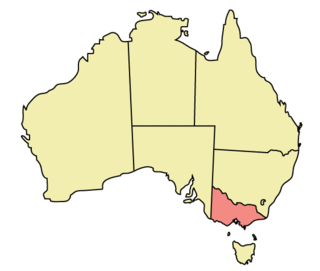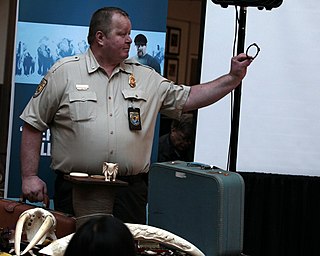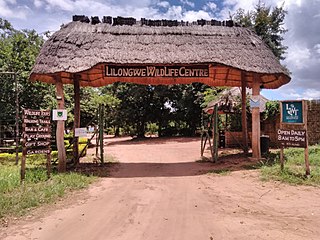| Wildlife Conservation Enactment 1997 | |
|---|---|
| Sabah State Legislative Assembly | |
| |
| Citation | No. 6 of 1997 |
| Territorial extent | Sabah |
| Passed by | Sabah State Legislative Assembly |
| Passed | 18 November 1997 |
| Assented to | 24 December 1977 |
| Signed by | Sakaran Dandai, Yang di-Pertua Negeri of Sabah |
| Administered by | Sabah Wildlife Department |
| Keywords | |
| Habitat conservation, habitat management, wildlife conservation, wildlife management | |
| Status: In force | |
The Wildlife Conservation Enactment 1997 (Malay : Enakmen Pemeliharaan Hidupan Liar 1997) is a regional piece of legislation enforced only in the state of Sabah in Malaysian Borneo. Its aim is to protect the endangered species of fauna and flora in the region as well as control international trade of these species. It also details specific punishments for those that break the rules and regulations put forth in the enactment.
The Wildlife Conservation Enactment 1997, in its current form (27 April 2016), consists of 12 Parts containing 119 sections and 5 schedules.

CITES is a multilateral treaty to protect endangered plants and animals from the threats of international trade. It was drafted as a result of a resolution adopted in 1963 at a meeting of members of the International Union for Conservation of Nature (IUCN). The convention was opened for signature in 1973 and CITES entered into force on 1 July 1975.

Poaching is the illegal hunting or capturing of wild animals, usually associated with land use rights. Poaching was once performed by impoverished peasants for subsistence purposes and to supplement meager diets. It was set against the hunting privileges of nobility and territorial rulers.

The United States Fish and Wildlife Service is a U.S. federal government agency within the United States Department of the Interior which oversees the management of fish, wildlife, and natural habitats in the United States. The mission of the agency is "working with others to conserve, protect, and enhance fish, wildlife, plants and their habitats for the continuing benefit of the American people."

The Wildlife and Countryside Act 1981 is an Act of Parliament in the United Kingdom implemented to comply with European Council Directive 79/409/EEC on the conservation of wild birds. In short, the act gives protection to native species, controls the release of non-native species, enhances the protection of Sites of Special Scientific Interest and builds upon the rights of way rules in the National Parks and Access to the Countryside Act 1949. The Act is split into 4 parts covering 74 sections; it also includes 17 schedules.
The conservation status of a group of organisms indicates whether the group still exists and how likely the group is to become extinct in the near future. Many factors are taken into account when assessing conservation status: not simply the number of individuals remaining, but the overall increase or decrease in the population over time, breeding success rates, and known threats. Various systems of conservation status are in use at international, multi-country, national and local levels, as well as for consumer use such as sustainable seafood advisory lists and certification. The two international systems are by the International Union for Conservation of Nature (IUCN) and The Convention on International Trade in Endangered Species of Wild Fauna and Flora (CITES).

The International Fund for Animal Welfare (IFAW) is one of the largest animal welfare and conservation charities in the world. The organization works to rescue individual animals, safeguard populations, preserve habitat, and advocate for greater protections. Brian Davies founded IFAW. IFAW was instrumental in ending the commercial seal hunt in Canada. In 1983 Europe banned all whitecoat harp seals products. This ban helped save over 1 million seals. IFAW operates in over 40 countries.

The Flora and Fauna Guarantee Act 1988, also known as the FFG Act, is an act of the Victorian Parliament designed to protect species, genetic material and habitats, to prevent extinction and allow maximum genetic diversity within the Australian state of Victoria for perpetuity. It was the first Australian legislation to deal with such issues. It enables the listing of threatened species and communities and threats to native species, and the declaration of critical habitat necessary for the survival of native plants and animals.

The mountain weasel, also known as the pale weasel, Altai weasel or solongoi, primarily lives in high-altitude environments, as well as rocky tundra and grassy woodlands. This weasel rests in rock crevices, tree trunks, and abandoned burrows of other animals or the animals it previously hunted. The home range size of this animal is currently unknown. Geographical distribution for this species lies in parts of Asia from Kazakhstan, Tibet, and the Himalayas to Mongolia, northeastern China, and southern Siberia. The most common area for this species, however, is Ladakh, India. The conservation status, according to the IUCN, is near threatened because it is considered to be in significant decline and requires monitoring mainly because of habitat and resource loss.

The Wild Life (Protection) Act, 1972 is an Act of the Parliament of India enacted for the protection of plants and animal species. Before 1972, India had only five designated national parks. Among other reforms, the Act established scheduled protected plant and hunting certain animal species or harvesting these species was largely outlawed. The Act provides for the protection of wild animals, birds and plants; and for matters connected or incidental thereto. It extends to the whole of India.
The Lacey Act of 1900 is a conservation law in the United States that prohibits trade in wildlife, fish, and plants that have been illegally taken, possessed, transported, or sold.

The Chinese pangolin is a pangolin native to the northern Indian subcontinent, northern parts of Southeast Asia and southern China. It has been listed as Critically Endangered on the IUCN Red List since 2014, as the wild population is estimated to have declined by more than 80% in three pangolin generations, equal to 21 years. It is threatened by poaching for the illegal wildlife trade.

A conservation officer is a law enforcement officer who protects wildlife and the environment. A conservation officer may also be referred to as an environmental technician/technologist, game warden, park ranger, forest watcher, forest guard, forester, gamekeeper, investigator, wildernessofficer, wildlifeofficer, or wildlife trooper.
Sabah Wildlife Department, a local wildlife authority under Sabah's state Ministry for Tourism Development, Environment, Science and Technology, enforces the "Wildlife Conservation Enactment 1997" for the proper regulation, use, protection, conservation and management of wildlife, caves and wildlife areas in Sabah. Headquartered in Kota Kinabalu, Malaysia, jurisdiction is spread amongst district offices:

After declaring independence in 1981, Belize enacted the Wildlife Protection Act, which is the main source of wildlife law in Belize. Wildlife in Belize is defined as any undomesticated mammal, reptile or bird, amphibian and any egg, nest or part or product thereof. Although Belize is only two hundred miles (320 km) long and a little more than sixty miles (97 km) wide, it hosts a remarkable abundance of flora and fauna. It is the home of more than 150 species of mammals, 549 birds, 150 amphibians and reptiles, nearly 600 species of freshwater and marine fish and 3,408 species of vascular plants.

A wildlife inspector is a person empowered by law to protect wildlife.

The Wildlife Protection Society of India (WPSI) was founded in 1994 by Belinda Wright, its Executive Director, who was an award-winning wildlife photographer and filmmaker till she took up the cause of conservation. From its inception, WPSI's main aim has been to bring a new focus to the daunting task of tackling India's growing wildlife crisis. It does this by providing support and information to government authorities to combat poaching and the escalating illegal wildlife trade - particularly in wild tigers. It has now broadened its focus to deal with human-animal conflicts and provide support for research projects.

Wildlife smuggling or wildlife trafficking concerns the illegal gathering and trade of endangered species and protected wildlife, including plants and byproducts or products utilizing a species. Research on wildlife smuggling has increased, however, knowledge of the illicit trade remains limited. The differences between international policies and tendencies likely contribute to the extensive estimated range of wildlife smuggling, anywhere from $5-$23 billion, with an additional $67-$193 billion when timber and fish are included. The prolific growth of wildlife smuggling makes it the fourth-largest criminal enterprise globally after drug, firearm, and human trafficking. Products demanded by the trade include but are not limited to ivory, bushmeat, traditional medicine, and exotic pets. China and the United States are the largest buyers in the illegal wildlife trade. It often involves other illegal activities such as tranquilizing animals without proper authorization.

The United States Fish and Wildlife Service Office of Law Enforcement contributes to Service efforts to manage ecosystems, save endangered species, conserve migratory birds, preserve wildlife habitat, restore fisheries, combat invasive species, and promote international wildlife conservation. It is an office of the United States Fish and Wildlife Service (FWS).

Slow lorises are nocturnal strepsirrhine primates in the genus Nycticebus that live in the rainforests of South and Southeast Asia. They are threatened by habitat loss and fragmentation from deforestation, selective logging, and slash-and-burn agriculture, as well as by collection and hunting for the wildlife trade, including the exotic pet trade, and for use in traditional medicine and as bushmeat. Because of these and other threats, all five species of slow loris are listed as either "Vulnerable" or "Endangered" by the International Union for Conservation of Nature (IUCN). Their conservation status was originally listed as "Least Concern" in 2000 because of imprecise population surveys and the frequency in which these primates were found in animal markets. Because of their rapidly declining populations and local extinctions, their status was updated and in 2007 the Convention on International Trade in Endangered Species of Wild Fauna and Flora (CITES) elevated them to Appendix I, which prohibits international commercial trade. Local laws also protect slow lorises from hunting and trade, but enforcement is lacking in most areas.

The Lilongwe Wildlife Centre is a wildlife sanctuary in Lilongwe, Malawi, which is part of Lilongwe National Park. It was founded in 2007 by the Lilongwe Wildlife Trust (LWT) and the Born Free Foundation. The Centre is a member of the Pan African Sanctuary Alliance (PASA) and the Global Federation of Animal Sanctuaries (GFAS). It is known for its animal rescue work.